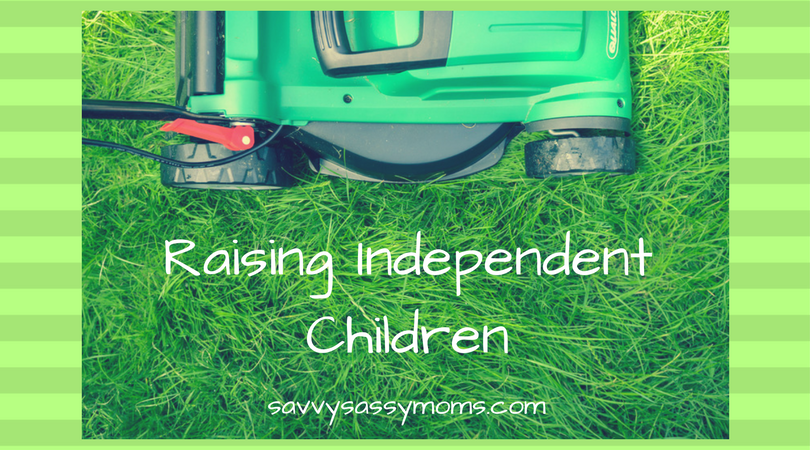People often ask me where I get my article ideas. Many come from my own personal experiences having children, others are from families I support, and a few come from specific requests. The rest, like this one, arise from watching and listening wherever children learn, laugh and play!
Overheard in my school’s staff room
I finally spent my lunch hour in the student-forbidden staff room. (Let’s be honest, more like a 15-minute break that snuck in amongst the fires I try to extinguish in any given school day.) There, I overheard a conversation between two teachers.
- First Teacher: I couldn’t believe what I heard today.
- Second Teacher: What?
- FT: I reminded a student that he needed to clean up the package he dropped on the floor and he said that’s why we have school caretakers.”
- ST: No, he didn’t!
- FT: Yes, can you believe it!? I then mentioned something about cleaning up at home and he said that’s why he has a nanny.
- ST: He did not.
- FT: Seriously. I can’t believe he said that, he’s only in senior kindergarten!
Understanding why parents don’t have kids act independently
Later that day, the same teacher came to me in private and asked if I could observe her classroom. She wanted to know if perhaps she was expecting too much of her students in kindergarten. Some of you reading this may think, “No way my child would ever say that”. However, even without having a nanny, in today’s over programmed, busy home life, many parents do way too much for their children. This lends itself to the question: How much should I expect of my child?
When I first begin with a family during the intake process, one of my standard questions is, “What does your child’s independent skillset look like? For example, what chores does your child do?” Often, the response is a sheepish smile and comments like, “He’s too young,” “I admit I don’t really push this issue,” “He is so active in sports, he can, he just doesn’t,” or “We are so busy, I don’t want to sound like I’m nagging so I just end up doing it myself.”
Your kids look up to you to guide them
You probably remember those days when your young ones needed you for everything. Although those days are long gone, your kids still need you even when they think they don’t. Your children’s independence is essential, and one of the best ways to influence the direction of your children’s character is by being a good role model. It is your responsibility to ensure that they’re successful, happy, and productive members of society. For instance, you can walk the talk and enroll for the Wilkes University RN to MSN program. In fact, research shows that parents who go back to school raise children who will go to high levels of education.
Why children benefit from responsibilities
When we allow them the chance to do things on their own, we teach them core competency skills, which are essential to lifelong success. It’s more than doing their chores. It lets us support our children in building independence in many different areas. It helps them become self-reliant individuals. The structure and consistency involved in completing a task also helps to reduce possible behavior challenges that may be exhibited during daily routines. Providing children, the opportunities to do things on their own creates positive feelings that go along with the sense of accomplishment as we teach them to persevere and problem-solve.
What children learn by having independent tasks
According to the Center on the Developing Child from Harvard University, there is increasing research from neuroscience and psychology emphasizing core capabilities we need to effectively manage in life and to be productive members in our communities. Some of these include our ability to focus, plan, problem-solve, be flexible and aware. As parents, you can provide the platform for your children to reach their potential and develop these necessary skills from an early age.
I understand that sometimes we are in a rush to get out the door and it’s just easier and less of a headache if you just do it for your child. But when we take a step back, and try to be patient while our children complete the task on their own, the result is so much more satisfying for all involved. Children feel confident when they try something on their own and master the skill. It is an essential component to building a positive sense of self and a healthy mindset. A healthy growth mindset allows children to approach an experience with creativity and the desire to learn. You can help them set goals and make a plan for how to achieve them. As a parent, you feel a sense of pride with your child’s accomplishments which means you now have bragging rights, and who doesn’t want to brag about their own child once in a while?
Some tasks to help raise independent children
Building independence in your children begins with knowing what to expect from your child at different ages, so you will want to set age appropriate goals to reduce your child’s frustration. Its about creating a balance between something that is a challenge, but not too difficult that they won’t be able to achieve the end result. Examples of where you can help build independence include:
- Tidying up toys
- Getting dressed
- Placing dishes on the counter, or in the dishwasher
- Helping to wash or dry dishes
- Setting the table
- Making a grocery list
- Dusting/vacuuming
- Putting out the garbage/recycling bins
- Placing clothes in the hamper or putting away clean clothes
- Picking out their clothes the night before
- Preparing their own lunches or helping with other meals
- Mowing the lawn/raking the leaves
- Shoveling the snow
Let kids direct their responsibilities
Before you begin, ask your child if there is an area where they would like to see self-growth. Allowing your child the chance to choose for himself may lead to greater buy-in and increased motivation. Once the decision has been made, make sure you use simple and concrete language to help guide them through the process. You may even want to consider breaking the task down into smaller teachable and more manageable steps. Though the ultimate goal is for your child to self-monitor his own behavior, you may need to initially monitor his behaviour for a week with the intention of gradually transferring the management and monitoring over once you see success. During the process of teaching you can use subtle reminders and gestures (e.g., thumbs-up) to encourage self-monitoring.
How to stick with building independent skills
For some children, with consistent routines and practice, they will be able to complete these tasks by themselves before you know it. For others, a little more creative thinking will be needed to teach these skills. Consider using visuals like pictures or a checklist, role modeling, and reinforcement, like stickers. If you and your child prefer technology, then you may want to check out Brili. This system helpschildren stay on task and on time every day. Regardless of what tool you use, you will certainly need lots of patience!
Watch your child’s self-esteem grow the more they get to experience the success that comes with feeling important contributors to your family. The bonus? It will lessen the load for you.
I promise, instead of cringing when you hear, “I don’t know how!” your heart will melt and beam with pride when you hear those four precious words, “Mom, I did it!”
How do you encourage independence in your children?
Resources and references:
- www.symbolworld.org
- www.yourspecialchef.net
- https://developingchild.harvard.edu/science/deep-dives/adult-capabilities/
- https://www.psychologytoday.com/blog/the-power-prime/201011/parenting-raise-independent-children
- Dweck, C. (2016). Mindset, The New Psychology of Success. Penguin Random House LLC: New York
Read more from Janet Arnold in her book: How to Explain a Diagnosis to a Child
Share this Post








